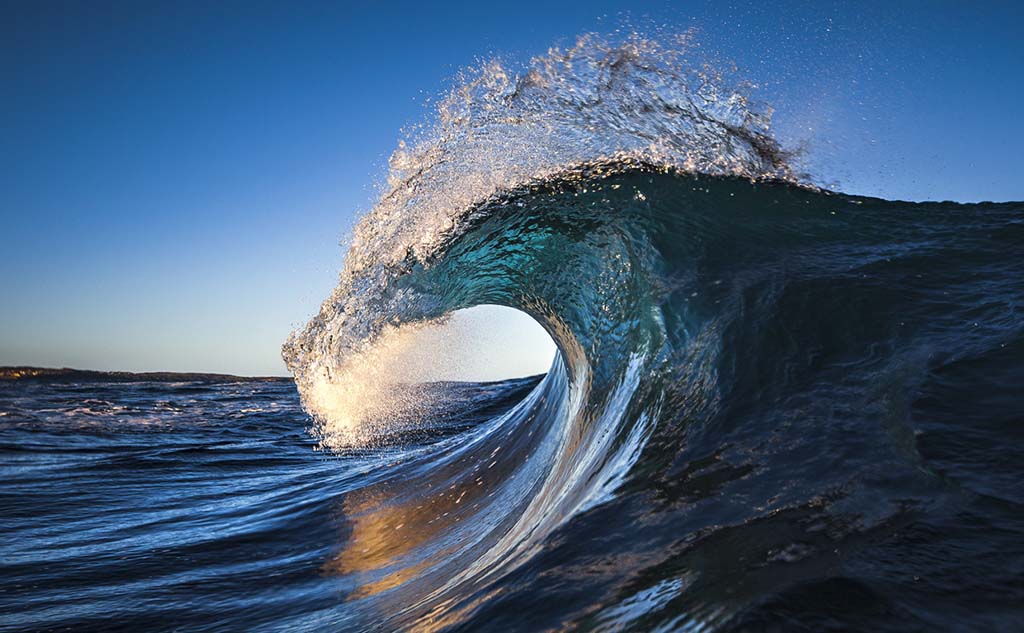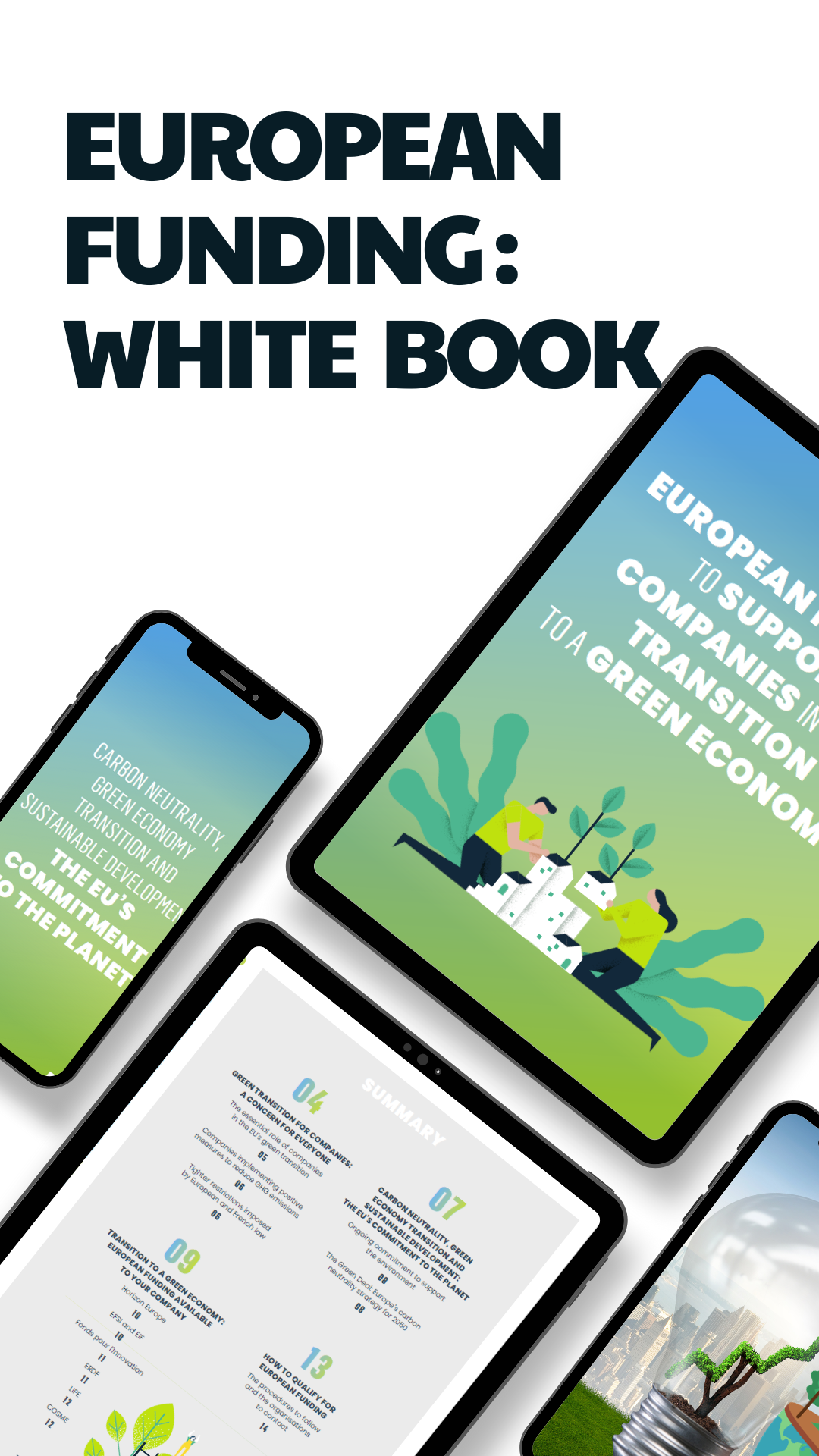Renewable marine energies, decarbonisation of maritime transport, restoration of marine and coastal ecosystems, pollution reduction, port greening, marine biotechnology development and more – the transitioning of maritime and coastline activities toward a sustainable blue economy is edging ever closer to reality. Faced with the scale of the challenges, the finance sector is also readying itself. Special funds, along with other forms of dedicated support, are being launched by actors from every background: banks (both public and commercial), asset managers, institutional investors and more – here are a few examples.
From ocean funds…
One of the first to engage in the sector is Mirova. In fact, the management company launched the Sustainable Ocean Fund in summer 2020, aimed at financing projects and innovative companies in the marine & coastal world. The final total of funds raised reached over USD132 million. As at the end of 2021, the fund had made 11 investments, particularly in sustainable sea products, the circular economy and ocean conservation.
Launched more recently, in September 2021, the Blue Ocean fund from Swen Capital Partners, Ifreme & BpiFrance was intended to support innovations dedicated to ocean regeneration. One year later, in October 2022, the initial goal of €120M had already been surpassed and, as at mid-March 2023, the closing total reached €170M. Beyond the initial subscribers (Macif and Crédit Mutuel Arkéa), the fund attracted leading American and European investors. It has already invested in 9 companies across 4 countries, one of which – Norway’s Optoscale – is developing cameras intended for use in aquaculture.
… to more generalist “blue economy” funds
2022 saw the arrival of more multi-sector blue economy funds. One of these, the Blue Forward Fund created in February by Seventure Partners aims to support innovations enabling the sustainable exploitation of marine resources and organisms (blue hydrogen, renewable marine energies, biosourced products, blue circular economy, sustainable aquaculture, ocean preservation, sector digitalisation). This capital-innovation fund launched with the support of popular banks should support around 20 innovative companies with a target of €130 million.
Launched in June by CPR AM, the CPR Invest Blue Economy is a themed internationally-active management fund investing in the marine economic ecosystem. Investments are split between companies linked to the ocean economy (aquaculture, fishing, transport, maritime, infrastructures, renewable energies) and those contributing to ocean preservation (waste and water quality management, carbon sequestration etc.).
In the same way, the Impact Ocean Capital fund created last January by GO Capital is intended to support companies with innovative technologies which contribute to protecting the oceans, decarbonising maritime activities and building sustainability in the maritime industry. This new fund will eventually be endowed with €70 million. It is supported by the Banque des Territoires on its own behalf and the State as part of France 2030 (with Ademe, Banque Populaire du Grand Ouest, Crédit Mutuel Arkéa and various entrepreneurs). It will also work with 2 winners from the Territoires d’Innovation programme: Le Havre, smart port city and La Rochelle, zero carbon territory.
Other blue finance operations
Other players are also involved in blue finance operations. For example, at the start of 2022, the Secretary of State for the Sea created the Fonds d’intervention maritime (Maritime Intervention Fund – FIM) to help projects at local scale and support the development of sustainable maritime activities. The FIM was extended this year with an overall allocation of €15 million. The call for tenders – open until 16 April – joins other sources of funding along 3 priority development axes: coastline improvement to promote maritime activities (heritage lighthouses and ships, wrecks and abandoned ships, improvement of maritime coastline, clean coastal ships), development of the blue economy and maritime planning (new digital services for those involved with or working at sea, blue economy and strategic planning) and training for maritime occupations. In 2022 the two FIM calls for projects allowed 52 local partners’ projects to be supported through investment financing, research or one-off expenditure.
The French Development Agency (AFD – Agence française de développement) is also playing a role in blue financing with blue loans and blue bonds. In 2022, it launched an initial project, through its Proparco subsidiary, aimed at protecting the marine ecosystem in China. A blue loan of USD150 million led by the International Finance Institution in partnership with the Asian Development Bank and the German private sector development financing institute (DEG) will allow the Bank of Qingdao to implement around 50 blue projects by 2025. These will contribute significantly to reducing volumes of marine waste and raw sewage, limiting plastic pollution, preserving water resources and improving fishing practices in Shandong province. A second project is under consideration for blue financing in Latin America. For the record, the AFD, together with its German counterpart the KfW, is a partner in the Clean Ocean Initiative launched in 2018 by the European Investment Bank (EIB) for the financing of projects aimed at reducing plastic waste on land and in the seas. This initiative was joined in 2020 by the Italian Cassa Depositi e Prestiti and the Spanish Instituto de Crédito Oficial, and in February 2022 by the European Bank for Reconstruction and Development (EBRD), allowing the target to be raised from €2 to €4 billion by 2025.
There are also other recent international-scale initiatives to watch. For example, as part of the European Sustainable Blue Economy partnership, an initial call for transnational projects was launched at the end of February with the aim of financing research and innovation projects in 5 defined themes, from marine offshore infrastructures to implementing ocean digital twins, to the EU’s marine basins, via the transition of sea product production. In addition, the Blue Partnership for the Mediterranean, launched during COP27 in November 2022 to support the development of a sustainable blue economy in the countries around the Mediterranean Basin, is planning to launch a new dedicated financial instrument.




